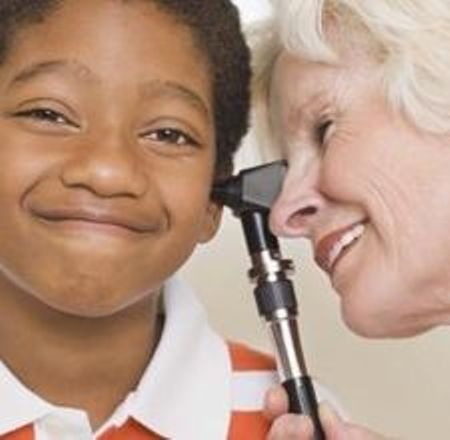
There are two types of ear infections primarily, acute and chronic. Mentioned ahead are the popular myths about ear infections along with the respective facts.
Ear ache means ear infection
Your ear aches and you fear infection. That may not be true as all aching ears are not infected. Ears may hurt for reasons like mucus congestion in the middle ear, trauma and bruised tympanic membrane. The eustachian tube connects our middle ear with the nasopharynx passage. This tube aerates and equates air pressure in the middle ear with atmospheric air pressure. We suffer conductive hearing impairment whenever a pressure imbalance occurs. The eustachian tube also drains out mucus from the middle ear. But due to cold, if this tube swells and chokes, mucus builds up within the middle ear. Even in absence of any viral or bacterial infection, such mucus build can cause ear pain. However, you cannot distinguish it from infection induced pain.
So, often people misjudge almost every ear ache as ear infection or otitis media. Beside bacterial or viral infection, more deeper problems like cancerous growth and Herpes zoster oticus can also cause pain. So, if your ear hurts visit a doctor immediately. Without proper diagnosis, it is difficult to deduce the cause behind the aching ear.
Treat ear infection with antibiotics
Since the invention of penicillin, antibiotic drugs have been generously used for treating bacterial infections. Owing to such extensive use, many classes of bacteria have developed resistance to antibiotics. In the US, Streptococcus pneumoniae, Haemophilus influenza and Moraxella catarrhalis are the cause behind most ear infections. And 15% of these pathogens are now resistant to ‘first choice’ antibiotics.
Besides, ear ache, without or with infection, often heals within a couple of days on its own. Doctors abjure from prescribing antibiotics, considering cost and tentative side effects on health. So, never insist for an antibiotic in your prescription. There are alternative and effective treatments like using analgesic drugs and ear drops, applying heat to ears and taking rest.
Ear infection needs immediate medicationGenerally, 4 out of 5 types of ear infections heal even without taking any medicine. It has been found that 85% of ear infections heal without medication. In many European countries, doctors keep the patients under observation for a couple of days before prescribing any medicine. If the infection persists, then antibiotic or other medicines are advised. The American Association of Pediatrics also follows this approach. However, for children, use of mild analgesic is common to alleviate the discomfort.Ear infection cause permanent hearing lossThis is a gross exaggeration. Infection doesn’t make you deaf. You can suffer temporary hearing loss of conductive type following otitis media or otitis externa. Mucus in the middle ear or plugged ear canal restricts the sound waves from reaching cochlea or inner ear that carries hearing sensations to our brain. But, hearing improves as soon as the congestion within the ear gets cleared. The tympanic membrane often breaks open and allows the fluid or pus to pass through the ear canal. But, the ruptured membrane heals on its own. Till it is completely reconstructed, you can suffer partial hearing impairment.Using a hat in cold weather prevents ear infectionThis is a very old belief but hardly saves your ear from infection because the absence of a hat does not cause you infection. During cold weather, a hat can keep your ears warm and stop your eustachian tube from swelling. But, a hat cannot guard your ears from bacterial and viral infections. They are very contagious organisms and can cause otitis externa and otitis media irrespective of you wearing a hat or not.Ear infection is a genetic conditionIt is a gross exaggeration to say that ear infection are hereditary. The most common bacteria behind ear infections is Streptococcus pneumoniae. It creates 40% to 80% of ear infections in the US. Rhinovirus can also cause infection in the middle ear. And, they are not passed on through genetic means. However, recent studies attribute lack of immunity among some kids to genetic disorders. Poor immunity often makes these children susceptible to bacterial and viral attacks. So, not all but few cases of pediatric ear infection can be due to genetic disorders.You need an ear tube implant if you suffer from an ear infection
The eustachian tube balances air pressure and drains out mucus from middle ear. Doctors prescribe an artificial ear tube implant if the eustachian tube is narrow. This requires a small incision procedure called myringotomy. Less common problems like, Down’s syndrome, barotraumas and cleft palate also require ear tube implants.
However, these are all case specific treatments and ear infections in general do not require ear tube implants. Doctors recommend ear tube implants to kids with extremely narrow eustachian tubes. These plastic ear tubes temporarily aerate middle ear but eventually move out from tympanic membrane to ear canal. Then they fall out of the canal automatically or you can ask your doctor to simply remove them.




